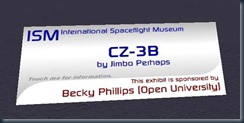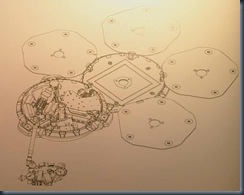Central government really wants to know about Virtual Worlds. It’s true! Indeed, almost all Local Authorities having programs about public engagement, inclusion, Futures, social networking and accessibility. Our authority is no different. BUT – Local Government doesn’t seem ready to adopt these technologies and embrace the opportunities for networking they offer on so many levels. Many of them are seen as easy to abuse, addictive and often really no more than toys. We are now though on the verge a fundamental shift in thinking where social networking, Virtual Worlds and the “Futures” agenda are concerned and these are now at least getting some airtime with some forward thinking authorities actually adopting or at least investigating the relevance to governance. Enter the Virtual Policies conference.
Hosted at BERR in London and organised by the Virtual Policy network (http://www.virtualpolicy.net), the purpose of the conference was to inform the government on the potential regulatory issues facing those that adopt (and indeed are currently using) virtual spaces. Issues such as Intellectual property rights, inworld economics and protecting the vulnerable. Right off, it’s worth mentioning that “SecondLife” is not the only virtual world out there which was ably pointed out on day one. However, Secondlife seems to have become a Defacto standard because of its inhabitants ability to create their own environments and inventory or objects. Dick Davis of Ambient Performance has some alternatives. Amongst other applications, His company produces closed simulators for environments such as the Military and Health. These allow personnel the ability to train for real world scenarios without the danger that could be involved (in the military example), or the expense of providing realworld alternatives. Of course, this is a supplement (known as “Augmented”), to real world exercises and not a replacement. The impression given that the need for real training in the “basics” can be reduced and realworld exercises can concentrate on those areas that cannot be adequately simulated due to the limitations in the technology or the need for actual “sensory feedback” such as pain! I’m sure immersive technology will eventually allow this to but this opens up a new debate on he morality of such experiences.
Interestingly, immediately preceding Dicks presentation, where the Educators. Notably the Open University who’s Schome and OpenLife projects have enabled collaborative working opportunities for both Young and Mature students respectively. Schome (The Education System for the Information age), although aimed at providing a lifelong learning platform, initially catered for Teenage students. It was hosted in a fully protected environment of SecondLife. The Identities of the individuals that took part where verified by independent means so as to provide an environment free from the potential pitfalls of predators. The initial aims of the project was to explore how Virtual Worlds could assist in the learning and development of individuals. The findings of the Schome project can be read about at http://kn.open.ac.uk/public/getfile.cfm?documentfileid=11344
Of course with any application of technology there is always the potential for abuse. We have all suffered from plagues of Email spam and many have also been victims of Phishing scams and identity theft. As adults, we can learn to deal with these and respond appropriately. How do we protect the vulnerable though? This protection should not only be children but adults too. There were several discussions about how this can be accomplished and I came away with the impression that the technology simply does not exist, yet. Many companies, such as the company offering “Habbo Hotel” a virtual space for teens, verify a users identity by using a credit card or the credit card of a responsible adult in the case of minor. This is open to all sorts of abuse but it does at least identify an individual who will be responsible for the actions of the registered person. BUT – What if a stolen or cloned card is used? It is not free from abuse. You would be surprised at how many virtual world offerings there are for young people! All of them suffer from the same identification issues. How do we also make sure that the providers of virtual spaces for the vulnerable are not taking advantage of their clients by, say, targeted ads or privacy violations? We learned that Virtual worlds must adhere to the same rules that advertisers in the realworld do but how many people are actually making sure this is so? Perhaps this is about educating the consumer within virtual worlds to know what is acceptable and what is not. Another questions posed is how responsible you are for your inworld counterpart?

(By kind permission : http://kzero.co.uk)
Knowing that even monopoly money could be considered income (you had to be there), the potential for financial gain and fraud within Virtual Worlds is as relevant as their realworld counterparts. Many realworld laws are being applied to Virtual worlds. For example, if you steal an object from another avatar (the generic name given to inworld occupants), is this really theft? In some worlds where game playing if the primary role, and if this is considered part of the game playing ethos, then it is accepted. Here, realworld and inworld laws breakdown. Or do they? Can you be prosecuted for criminal damage to, say, someone’s property if you and the owner agree that the act of damage is acceptable to you both? If you exchange real money, goods or services then there are common law contracts that bind all parties involved. This is no different in the Virtual World. Otherwise, fraud on websites would be policed. It is not about “money” but “value”.
There are many things to resolve when it comes to online social interaction and ePublic engagement (For want of a better term). Local Government has faced these issues before when introducing new technologies. 20 years ago, when we started to introduce email as a serious communication tool, we had the same barriers. Firstly, technology could not meet the demands of the application. Especially the exponential growth. Backend systems need to be saleable and designed to cope with the potential. This lesson we all have learned. A move to Virtual Worlds will be no less painful. They have heavy requirements on graphics processing and, in some cases, bandwidth. So 1 computer running Secondlife (as an example) will require 80kbps up and up to 400 kbps down. This is a modest requirement for a home user but multiply this tenfold for a local authority running many instances and it starts to have an impact. But this must not be used as an excuse not to see where this can take us. Local Authorities need to encourage staff and Members to use the potential of blogging, social networking and Virtual Worlds to help them reach the people they are there to serve. With appropriate safeguards (as are often in place for abuse of web browsing or email), networks should be opened up and officers/Members encouraged to take part in one of the biggest revolution to take place for decades.
So at this point you may be asking yourself “If Virtual worlds are so good, why have a real world conference”. And that would be a very good question. The Virtual Policies conference was also hosted simultaneously in SecondLife at Coventry University’s serious Games Institute. In some respects, an association with “gaming” that may be misunderstood. Virtual Worlds potentially can be (and often are) so much more then games. I can only offer the explanation that until we reach a critical mass of people that have access to Virtual Worlds, having a conference inworld will not be possible. However, having a conference that offers both inworld and realworld participation can only help with the accessibility agenda. The other limiting factor as discussed above is “Which Virtual world”. When we finally have an open way of crossing the virtual world boundaries, even if that means leaving our inventory behind to protect developers interests, then these types of conferences can truly happen in a virtual space.















